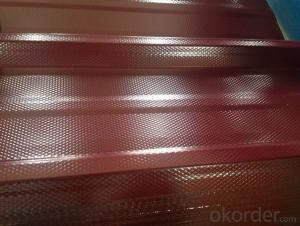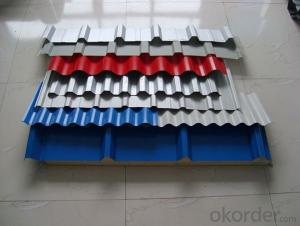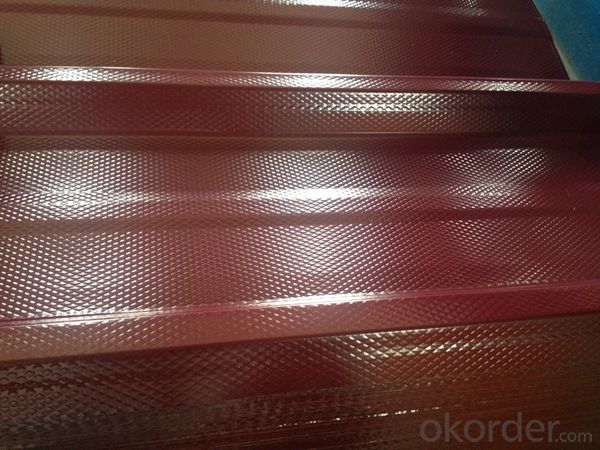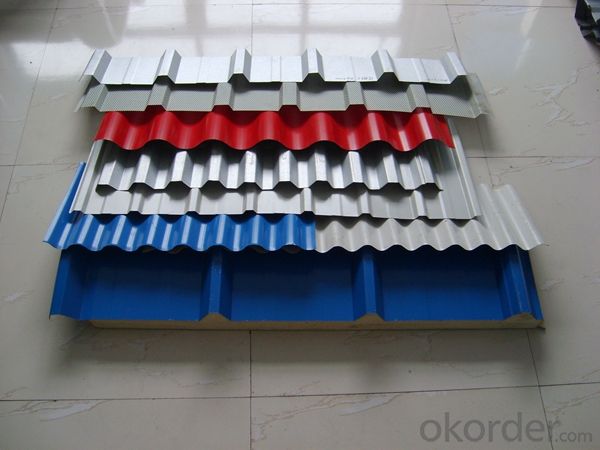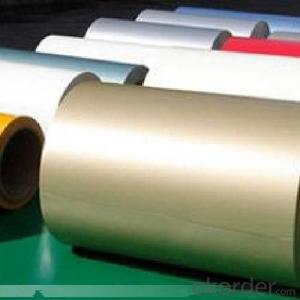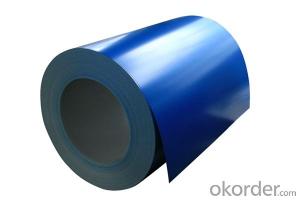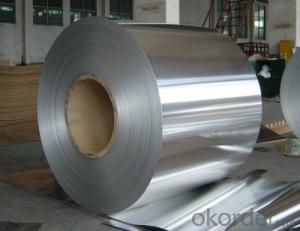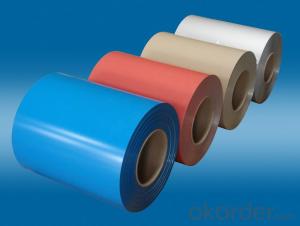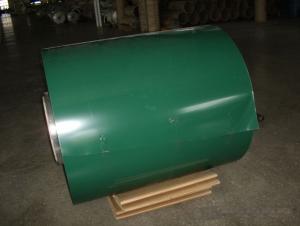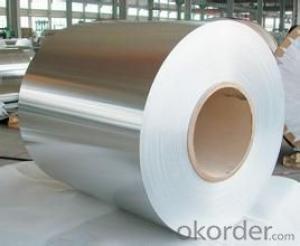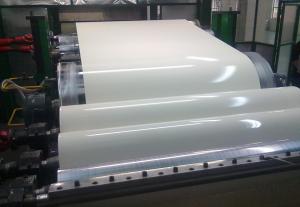Coil of Aluminum for Coating Metal Roofing System
- Loading Port:
- Shanghai
- Payment Terms:
- TT OR LC
- Min Order Qty:
- 5 m.t.
- Supply Capability:
- 10000 m.t./month
OKorder Service Pledge
OKorder Financial Service
You Might Also Like
Specification
1. Specification of Coating Aluminum Coil for Metal Roofing System
characteristics | Application |
1) Super peeling strength | 1) Building exterior curtain walls |
2) Excellent surface flatness and smoothness | 2) Decoration and renovation additions for old buildings |
3) Superior weather, corrosion, pollutant resistance | 3) Decoration of interior walls, ceilings, bathrooms, kitchens and balconies |
4) Even coating, various colors | 4) Shop door decorations |
5) Fireproof, excellent heat and sound insulation | 5) Advertisement board display platforms and signboards |
6) Superior impact resistance | 6) Wallboards and ceilings for tunnels |
7) Lightweight and easy to process | 7) Industrial materials, materials for vehicles and boats |
2. Application of Coating Aluminum Coil for Metal Roofing System
(1).Interior: wall cladding, ceilings, bathrooms, kitchens and balconies, shutters, doors...
(2).Exterior: wall cladding, facades, roofing, canopies, tunnels,column covers , renovations...
(3).Advertisement: display platforms, signboards, fascia, shop fronts...
3. Feature of Coating Aluminum Coil for Metal Roofing System
*Such coil is specially designed to replace aluminum ingot, due to the high export tax of aluminum ingot, the coil has better price than ingot.
*This type of coil can fit customer's remelting furnace just like ingot, no need to make any change to the production line that was previously used for ingot. The standard coil size and weight is very suitable for the feed gate of furnace.
*This type of coil causes less material wastage than ingot when remelted.
*Our coil is made directly from ore, no need to go though the ingot making process, quality is much better than other suppliers who use ingot scrap to make coil.
Be free from Oil Stain, Dent, Inclusion, Scratches, Stain, Oxide Dicoloration, Breaks, Corrosion, Roll Marks, Dirt Streaks and other defect which will interfere with use
4. Certificate:
SGS and ROHS(if client request, paid by client), MTC(plant provided), Certificate of Origin(FORM A, FORM E, CO), Bureau Veritas and SGS (if client request, paid by client), CIQS certificate
5. Image of Coating Aluminum Coil for Metal Roofing System
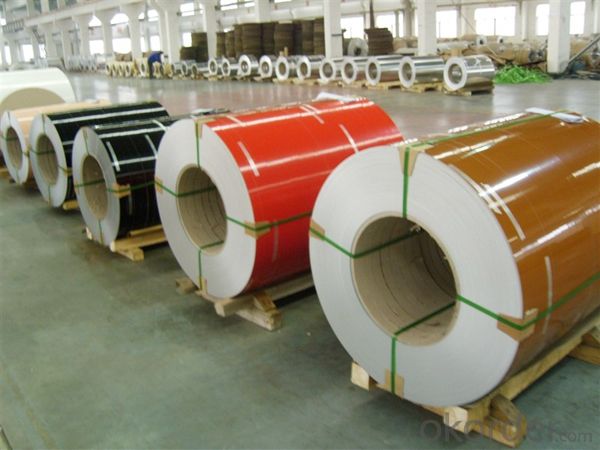
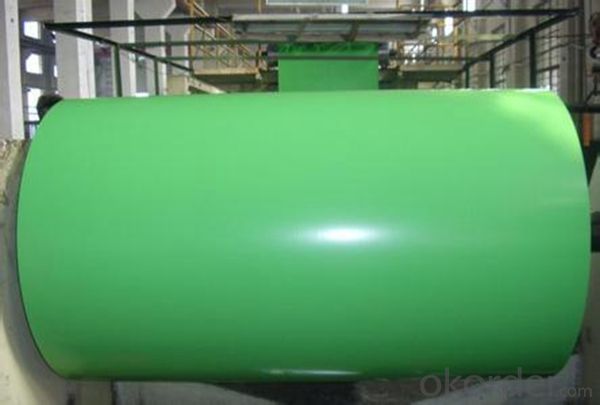
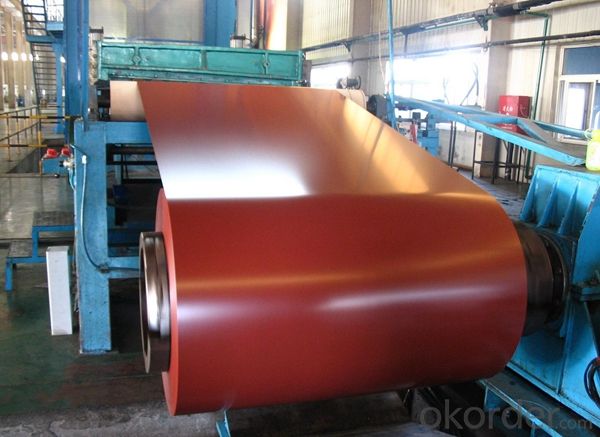
6. Package and shipping of Coating Aluminum Coil for Metal Roofing System
eye to wall
eye to the wall
with wood pallet (wooded case also available)
7. FAQ
1) What is the delivery time?
Dpends on actual order, around 20 to 35 days
2)What is the QC system:
We have QC staff of 20 persons and advanced equipment, each production is with MTC traced from Aluminum ingot lot.
3) What market do you mainly sell to?
Australia, America, Asia, Middle East, Western Europe, Africa etc
- Q: What are the different edge treatments available for aluminum coils?
- There are several different edge treatments available for aluminum coils, each with its own unique advantages and applications. 1. Mill Finish: This is the most basic edge treatment, where the edges of the aluminum coil are left as they are after the manufacturing process. This treatment is typically used for applications where aesthetics are not a priority, such as industrial or construction applications. 2. Trimmed Edge: In this treatment, the edges of the aluminum coil are trimmed to remove any sharp or jagged edges. This ensures safer handling and reduces the risk of injury during fabrication or installation. 3. Deburred Edge: Similar to the trimmed edge treatment, the deburred edge involves removing any burrs or sharp edges from the coil's edges. This is particularly important for applications where the aluminum coil will come into contact with other materials or surfaces, as it helps to prevent scratches or damage. 4. Rolled Edge: With this treatment, the edges of the aluminum coil are rolled to create a smooth, rounded edge. This not only enhances the overall appearance of the coil but also provides added protection against corrosion and damage. 5. Beveled Edge: In a beveled edge treatment, the edges of the aluminum coil are cut at an angle to create a sloping edge. This is often used in architectural applications where a sleek and modern look is desired. The beveled edge can also facilitate easier welding or joining of the aluminum coil. 6. Hemmed Edge: This treatment involves folding or bending the edges of the aluminum coil to create a hem-like finish. Hemmed edges provide increased strength and rigidity to the coil, making it suitable for applications that require added durability or structural integrity. 7. Painted or Powder Coated Edge: In this treatment, the edges of the aluminum coil are painted or powder coated to match the color or finish of the rest of the coil. This is commonly done to achieve a seamless and uniform appearance in applications where the coil's edges are visible. Overall, the choice of edge treatment for aluminum coils depends on the specific requirements of the application, including both functional and aesthetic considerations.
- Q: What is color aluminum coil?
- The base plates are all aluminum, but the surface has been colored.
- Q: I know it's almost 100% aluminum, but not completely. Does it have any impurities? I need to find the molar mass of aluminum foil.
- just use aluminum and goto the periodic table of elements. its all aluminum. they used to make it of tin.
- Q: How do aluminum coils contribute to the durability of roofs and facades?
- Aluminum coils play a crucial role in enhancing the durability of roofs and facades due to their inherent properties and design characteristics. Firstly, aluminum is highly resistant to corrosion, making it an ideal material for roofs and facades that are constantly exposed to harsh weather conditions and environmental elements. This resistance to corrosion ensures that the coils remain intact and unaffected by moisture, UV rays, and extreme temperatures, thereby extending the lifespan of the entire roofing or facade system. Additionally, aluminum coils are lightweight yet extremely strong, providing structural integrity to roofs and facades. This lightweight nature makes installation easier and reduces the load on the building's structure, which is particularly beneficial for larger structures. Despite being lightweight, aluminum coils have high tensile strength, meaning they can withstand significant loads and pressure without warping or deforming. This strength enhances the overall stability and durability of the roof or facade, ensuring it can resist external forces such as wind, snow, and hail. Moreover, aluminum coils are highly malleable, allowing for flexibility and ease of customization during the manufacturing process. This flexibility enables the coils to be easily shaped and formed to fit various architectural designs, ensuring a seamless and aesthetically pleasing appearance. The ability to customize the coils also facilitates efficient installation, as they can be tailored to fit different roof or facade dimensions, angles, and contours. Furthermore, aluminum is a non-combustible material, making it an excellent choice for roofs and facades in terms of fire safety. The non-combustible nature of aluminum coils significantly reduces the risk of fire spreading, providing an added layer of protection to the building and its occupants. In conclusion, aluminum coils contribute to the durability of roofs and facades by offering corrosion resistance, lightweight yet high tensile strength, malleability for customization, and non-combustibility. These properties ensure that the roof or facade can withstand the test of time, harsh weather conditions, and external forces, making them a reliable and long-lasting choice for any building structure.
- Q: Can aluminum coils be used for HVAC condenser coils?
- Yes, aluminum coils can be used for HVAC condenser coils. In fact, aluminum coils have become increasingly popular in recent years due to their numerous advantages over traditional copper coils. Aluminum coils are lighter, more durable, and more resistant to corrosion. They also have excellent heat transfer properties, allowing for efficient cooling of the refrigerant. Additionally, aluminum coils are more cost-effective and environmentally friendly compared to copper coils. Overall, using aluminum coils for HVAC condenser coils is a viable and beneficial option.
- Q: Are aluminum coils suitable for electrical conductors?
- Aluminum coils, indeed, prove to be suitable for electrical conductors. Due to its remarkable electrical conductivity, aluminum has become a widely utilized material in the electrical industry. It possesses approximately 61% conductivity in comparison to copper, the utmost commonly employed metal for electrical conductors. Lightweight, cost-effective, and possessing good thermal conductivity, aluminum coils have become a favored selection for a range of electrical applications. Nonetheless, it is noteworthy that aluminum has a lower tensile strength than copper, thus potentially demanding a larger cross-sectional area to attain an equivalent level of current carrying capacity. Furthermore, to prevent oxidation and guarantee efficient electrical conductivity in aluminum coils, it is imperative to employ proper insulation and connectors.
- Q: Can a spring balance be used to accurately determine the weight of an aluminum coil?
- <p>Yes, you can use a spring balance to measure the weight of an aluminum coil, but the accuracy depends on the balance's specifications. Ensure the balance has a sufficient capacity to measure the coil's weight and is calibrated correctly. Keep in mind that spring balances are less precise than electronic scales, especially for heavy or sensitive measurements. For high accuracy, consider using an electronic scale designed for industrial use.</p>
- Q: How much is the rust-proof and thermal insulation aluminum coil?
- 3003 alumal alloy is the best and common rust-proof and thermal insulation aluminum coil. The price depends on the thickness and width you need.
- Q: Is it possible to use a welding process to join two pieces of aluminum coil?
- <p>Yes, you can weld two pieces of aluminum coil together, but it requires specific techniques and equipment. Aluminum welding is different from steel welding and requires a TIG (Tungsten Inert Gas) or MIG (Metal Inert Gas) welding process. It's crucial to use a clean, dry aluminum filler rod and maintain a clean, oxide-free surface on the aluminum. Additionally, a shielding gas like argon is necessary to protect the weld area from oxidation. Special precautions must be taken due to aluminum's high thermal conductivity and reactivity, so it's recommended to have experience or professional guidance when welding aluminum.</p>
- Q: What are the typical delivery methods for aluminum coils?
- Aluminum coils are transported using various delivery methods, which depend on the size and quantity of the coils. However, there are several commonly used methods in the industry. Trucks are one of the most frequently employed methods. Aluminum coils are typically transported on flatbed trucks, providing a secure and stable platform during transit. This method is suitable for both short and long-distance deliveries, and it allows for easy loading and unloading at the destination. Rail transportation is another popular method. It is often used when larger quantities of aluminum coils need to be delivered or when the distance is significant. Rail cars equipped with flatbeds or specialized coil cars are used to transport the coils safely and efficiently. This method is particularly advantageous for long-distance deliveries, as it is generally more cost-effective and eco-friendly compared to other modes of transportation. Sea transportation is sometimes used for delivering aluminum coils. This method is commonly employed for international shipments or when the coils need to be transported over long distances. Coils are typically packed into containers to ensure their safety and protection during the journey. Although shipping by sea allows for efficient transportation of large quantities of coils, it may take longer due to customs procedures and port handling. For smaller quantities of aluminum coils, air freight can be utilized. This method is often chosen when time is of the essence or for urgent shipments. Airplanes with cargo holds are used to transport the coils, ensuring their safe and expedited delivery. However, it is generally more expensive than other delivery methods, so it is typically reserved for time-sensitive or high-value shipments. In conclusion, the delivery methods for aluminum coils include trucks, rail, sea, and air. The appropriate method is selected based on factors such as size, quantity, distance, urgency, and cost considerations.
Send your message to us
Coil of Aluminum for Coating Metal Roofing System
- Loading Port:
- Shanghai
- Payment Terms:
- TT OR LC
- Min Order Qty:
- 5 m.t.
- Supply Capability:
- 10000 m.t./month
OKorder Service Pledge
OKorder Financial Service
Similar products
Hot products
Hot Searches
Related keywords
